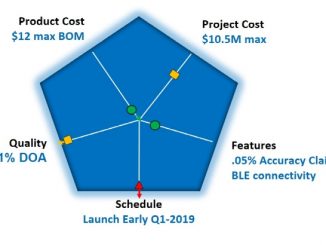Articles and videos on creating and managing cross-functional Scrum teams: scrum master, product owner and development team.
Scrum of Scrums is a technique used to scale Agile by dividing the groups into Agile teams of 5-10. Each daily scrum within a sub-team ends by designating one member as representative to participate in a daily meeting with ambassadors from other teams, called the Scrum of Scrums. This article provides some tips on how to succeed with Scrum of Scrums.
As an Agile product development team in a large organization you may need to collaborate with other parts of the organization to deliver value to the end users. Your colleagues in your Scrum team may have different professions and work culture than your own. Starting off without a shared language, understanding of the goals, process or roles, the collaboration might turn more difficult than expected.
Agile software development refers to methodologies and principles of effective, iterative, and collaborative programming. It becomes more and more popular nowadays as it suggests a more affordable and client-oriented process. Agile nearshoring means delegating programming tasks to dedicate teams in a nearby country to increase business success and get a project released faster.
In their book “Help Work to Flow”, Samantha Laing and Karen Greaves have explored their Agile working and coaching experience to collect 40 tips, techniques and games that should allow you to work in the state of flow, this situation where you are more productive.
The values contained in the Manifesto for Agile Software Development might be good for the Agile teams, but most of the senior management in organizations prefer having a defined solution, a detailed planning and a budget that should be respected. This article discusses how to make these two different approaches work together.
What would be made possible if you could unleash the intelligence and creativity of everyone in the Scrum team? Liberating Structures are a collection of easy-to-learn facilitation patterns that make this possible. They are field tested, rooted in complexity science and freely shared under a creative commons license.
In an ideal Agile world, the Scrum Master takes care of only one Scrum team. This is however not always possible and then he has to split his time between many teams. In this article, Alexander Chaves shares some tips on how to lead multiple Agile teams without becoming insane.







